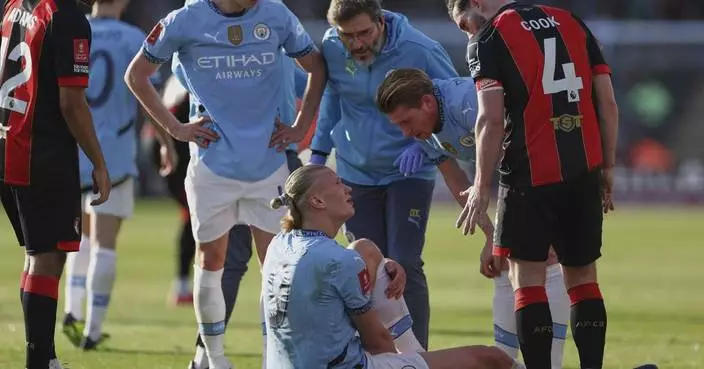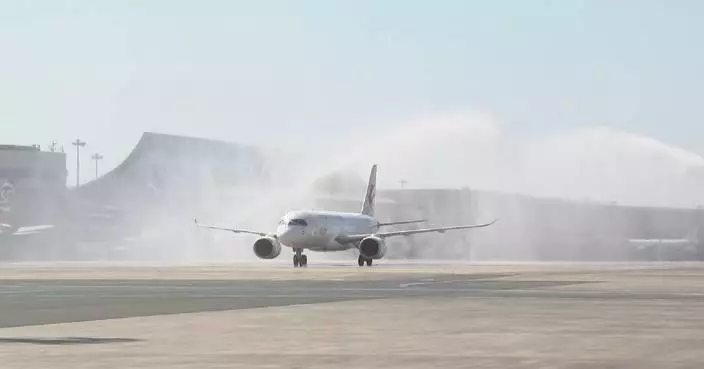DH reminds public to remain vigilant and take precautions against other respiratory infections even though influenza season is over
The Centre for Health Protection (CHP) of the Department of Health (DH) today (March 27) announced that the winter influenza season, which started in early January 2025, has come to an end. The relatively low number of severe and death cases this season is believed to be the result of the concerted and comprehensive efforts of various stakeholders in the community and the public to increase the seasonal influenza vaccination (SIV) rate. On the other hand, the CHP anticipates the activity of other respiratory infectious diseases, including COVID-19, to become more active as Hong Kong enters spring and summer. Members of the public are reminded to remain vigilant, and high risk groups should receive COVID-19 vaccine as soon as possible to minimise the risk of serious complications and death after infection.
Influenza season is over
___________________
"The CHP has been closely monitoring the local seasonal influenza activity through a series of indicators. Since the start of the winter influenza season in early January this year, the seasonal influenza activity in Hong Kong has continued to increase and remained at the highest level from late January to early February and then gradually declined. According to surveillance data as of March 22, the percentage of respiratory specimens testing positive for seasonal influenza viruses was 2.3 per cent, and the public hospital admission rate related to influenza was 0.12 per 10 000 population. Both dropped below the baseline levels. The weekly number of influenza-like illness outbreaks in schools and institutions also dropped from more than 20 in January to February to an average of 12 in the last two weeks. As various indicators suggest that the influenza virus is at a low activity level, the CHP assesses that the influenza season is over," the Controller of the CHP, Dr Edwin Tsui said.
He noted that the current influenza season lasted for about 11 weeks, about the same length as in the past. Since only one influenza virus strain, i.e. influenza A (H1), predominated during the period, the influenza season was not prolonged due to a shift in virus strains.
"As in the past, severe or death cases related to seasonal influenza continued to affect primarily the elderly and children. Compared to the 2018/19 influenza season prior to the COVID-19 pandemic, which was also dominated by influenza A (H1), the 488 severe cases involving adults recorded this season was about 20 per cent lower than the 2018/19 influenza season, when 601 cases were recorded. For children, 10 cases of severe influenza-associated complications were recorded this season (without deaths), which was nearly 60 per cent lower than 24 cases (including one death) recorded in the 2018/19 influenza season. We believe that this is the result of the general public's willingness to receive the seasonal flu vaccine," Dr Tsui said.
With the concerted efforts of all sectors of the community (including the medical sector, schools, parents and residential care homes), as of March 23 this year, a total of about 2.07 million doses of vaccine were administered under various SIV programmes in the year 2024/25, representing an increase of about 12.2 per cent over the same period of the last influenza vaccination season and exceeding the total number of doses (about 1.87 million doses) administered last season, which is a record high. The coverage rates exceeded 50 per cent in most age groups, ranging from 51.3 per cent to 73.8 per cent. The coverage rates increased in all relevant age groups compared with the same period last season. The Hospital Authority (HA) also actively dovetails with the Seasonal Influenza Vaccination Programme of the Government in providing free influenza vaccination to eligible persons under the programme at its general and specialist out-patient clinics. As of March 23 this year, the HA has administered a total of about 580 000 doses of vaccine to the above-mentioned persons, representing an increase of about 18.4 per cent compared with the previous influenza vaccination season. In addition, to better protect patients, staff and their families, approximately 60 500 HA staff have received seasonal influenza vaccines. This number also increased by 11.8 per cent compared with the previous season.
The number of schools participating in the SIV School Outreach Programme has also increased significantly this year. About 1 020 kindergartens/child care centres (97 per cent), about 640 primary schools (98 per cent) and about 490 secondary schools (98 per cent) have completed or will conduct SIV school outreach activities, which is higher than the participation rates in year 2023/24 (80 per cent of kindergartens/child care centres, 95 per cent of primary schools and 70 per cent of secondary schools).
2025/26 Seasonal Influenza Vaccination Scheme
_______________________________________
"On March 21, 2025, the Scientific Committee on Vaccine Preventable Diseases (SCVPD) under the CHP issued recommendations on the seasonal influenza vaccines to be used and the priority groups for receiving vaccination for the upcoming 2025/26 influenza season in Hong Kong, after reviewing the scientific evidence, local data, the latest World Health Organization recommendations and overseas practices. The Government is proactively planning for the 2025/26 SIV Programmes, including liaising with vaccine suppliers on the availability of vaccines for the upcoming season in preparation for vaccine procurement, planning for the provision of nasal live-attenuated influenza vaccines to all schools, and allowing all schools to choose between injectable inactivated influenza vaccine and nasal live-attenuated influenza vaccine at the same or different outreach vaccination activities, in order to provide further facilitation and encourage all schools to participate in the SIV School Outreach Programme in the coming season," Dr Tsui added.
Regarding the 2025/26 SIV Programmes, the Government will also explore the feasibility of procuring some influenza vaccines for participating private doctors participating in the Vaccination Subsidy Scheme and is obtaining information from suppliers about the market supply situation. An announcement will be made at an appropriate time.
"The SIV coverage rates for children aged 6 months to under 2 years and people aged between 50 and 64 remained relatively low at about 26.8 per cent and 25.3 per cent respectively. Although slightly higher than that of the same period last season, it was still lower than that of other age groups. Targeting these two age groups with relatively lower vaccination rates, the Government will strengthen targeted publicity in the coming season and enhance collaboration with family doctors to encourage their clients in the community to receive seasonal influenza vaccines to safeguard the health of the public," Dr Tsui added.
Prevention of other respiratory infectious diseases
________________________________________
Although the winter influenza season is over, members of the public should not overlook the presence of those respiratory pathogens that will become more active in spring and summer, including rhinovirus/enterovirus, respiratory syncytial virus, human metapneumovirus and summer influenza season.
Furthermore, there has been a recent increase in the activity of COVID-19 in the local community. In the past three weeks, the load of SARS-CoV-2 virus from sewage surveillance, the percentage of specimens tested positive and the average consultation rate of COVID-19 cases in general out-patient clinics have continued to rise from low levels. As of March 22, the viral load per capita of SARS-CoV-2 virus was around 260 000 copy/litre, which was significantly higher than the previous week ending March 15, when it was 85 000 copy/litre.
"The public should maintain good personal, hand and environmental hygiene. Furthermore, high-risk persons should receive COVID-19 booster doses at appropriate times to lower the risks of serious illness and death. Genetic analysis has shown that the most predominant circulating strains in Hong Kong are still JN.1 and its descendant lineages, and the vaccines currently used in Hong Kong can effectively prevent the related variant," Dr Tsui said.
"Scientific data shows that timely booster doses of COVID-19 vaccine for high-risk persons help lower the risk of severe illness and death. Members of the public who have not received the initial dose of the COVID-19 vaccine (including infants and children) should get vaccinated as soon as possible. Those at high risk (particularly the elderly and persons with underlying comorbidities) should receive a booster dose as soon as possible for effective prevention against COVID-19," he added.
Dr Tsui reminded members of the public that anyone with symptoms of a respiratory infection, even if the symptoms are mild, should wear a surgical mask and seek medical advice promptly to lower the risk of spreading the disease to high-risk persons.
Members of the public may refer to the CHP's COVID-19 & Flu Express, Seasonal Influenza Webpage, COVID-19 Vaccination Programme Webpage, and Vaccination Schemes Webpage, for the latest information.














































